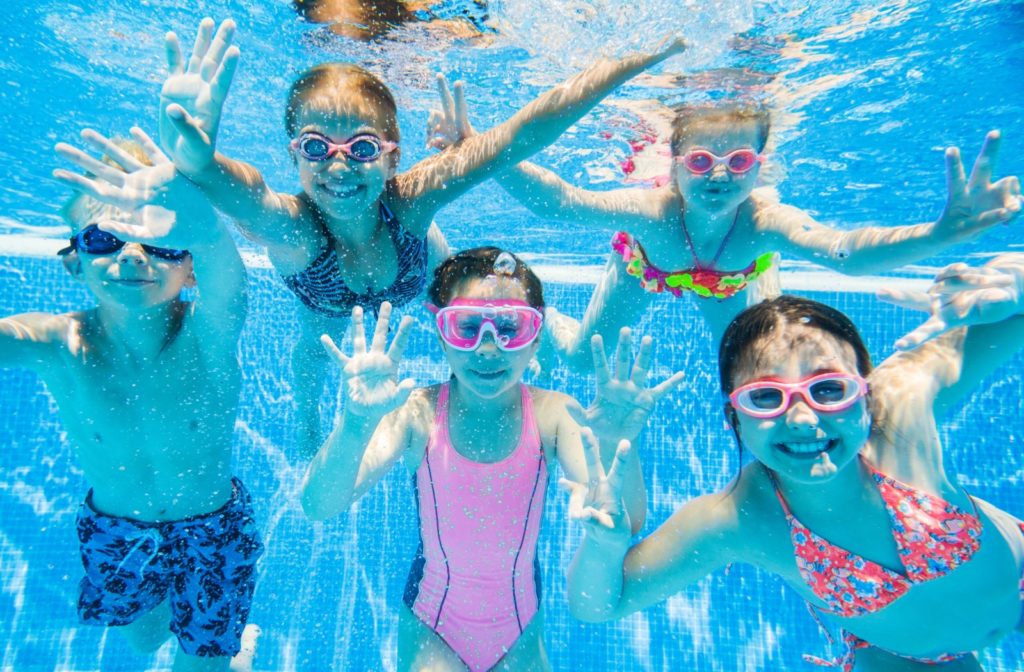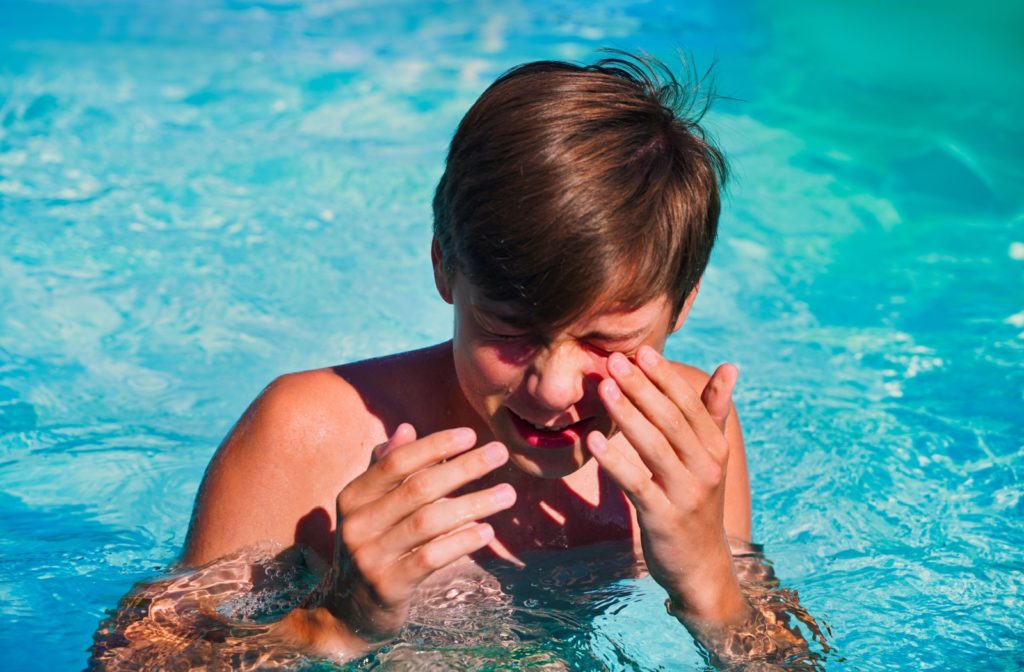Swimming can be an extremely refreshing way to spend a day. But your eyes are sensitive, and you should always try to keep them protected. Pool water can easily irritate your eyes and lead to redness, blurry vision, irritation, and more. If this sounds familiar, you’re not alone; this happens to swimmers all the time! So, how do you get rid of blurry vision after swimming?
If you’re constantly dealing with this problem, start by washing your eyes with clean, cool water. Eye drops can also help you find relief; try talking to your optometrist for a prescription bottle. It also helps to buy a pair of properly fitting goggles with a seal to keep water out of your eyes.
What Is Swimmer’s Eye?
Pool maintenance isn’t always easy. You must regularly pull out debris, sweep any buildup, and keep an eye on the filter. One of the most common tasks is regularly adding chlorine—but why do you need to do this?
Chlorine acts as a disinfectant and helps keep the pool water clean. Without it, your pool will start amassing bacteria and microorganisms, which can thrive in this environment. By maintaining the right chlorine level, you can prevent this buildup, letting you enjoy taking a dip whenever you choose without worrying about the dangers of exposure to such organisms.
However, chlorine can also easily irritate the eyes. While it helps keep bacteria under control, it can strip away the thin film of tears protecting your eyes from the outside world. The longer you’re under the water, the longer you’re exposed to the chlorine.
This can easily lead to irritation, redness, and more. This is often called “swimmer’s eye,” but it’s also a form of chemical conjunctivitis—irritation caused by chemical exposure.
Recognizing the Signs of Swimmer’s Eye
Recognizing the signs of swimmer’s eye is the first step towards finding relief and preventing this condition. Try to keep an eye out for the following symptoms when you’re swimming:
- Redness
- Itching or burning sensations
- Blurred or hazy vision
- Watery eyes
- Sensitivity to light
- A gritty feeling, like there’s sand in your eyes
If any of these sound familiar while swimming, you’re likely dealing with swimmer’s eye—and it’s time to take action.
How to Treat Swimmer’s Eye
The first step in treating swimmer’s eye is to immediately get out of the water and make your way to a place where you can flush your eyes with cool, clean water or a clean and sterile saline solution. Don’t use pool water at any point; this can make the problem worse!
Flushing your eyes helps rinse any remaining chlorine and gives your eyes a reset of sorts; they can start producing the tear film again to protect themselves and reduce the irritation.
It also helps to keep a bottle of eye drops on hand. These can supplement your natural tear film, providing immediate relief from burning sensations. Meanwhile, these drops also help stimulate healthy tear production, making it easier for your eyes to protect themselves.
If your symptoms persist or worsen, visit your eye doctor as soon as possible. They can assess your eyes and recommend the right course of treatment, like through prescription drops or ointments. Remember, your eye health is crucial, so don’t hesitate to seek professional care if you’re concerned about your vision.

Tips for Preventing Blurry Vision in the Pool
With swimmer’s eye, prevention is key. And it’s a lot simpler than you might think! It’s all about properly protecting your eyes in the pool to avoid prolonged contact with chlorine.
Here are some simple tips to keep your vision clear and your eyes comfortable:
- Wear well-fitting, leak-proof goggles. Make sure they fit snugly and have a tight barrier between the material and your face. You can also ask your optometrist about prescription goggles!
- Take regular breaks when swimming. Try to get out of the water every 30 minutes to allow your eyes to replenish your tear film.
- Rinse your eyes after leaving the pool, and use eye drops to flush out any remaining chlorine.
- Regularly check your chlorine levels to make sure they aren’t too low or high.
Take Care of Your Eyes
Swimming is a fantastic way to have fun, stay fit, and enjoy an afternoon. But it’s always crucial to prioritize your eye health!
If you have any questions or concerns about your eye health and vision, come see our team at Total Vision Rancho Bernardo. We can help you keep your eyes safe and healthy, so book an appointment with our team today.



